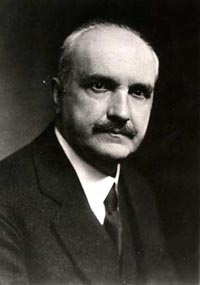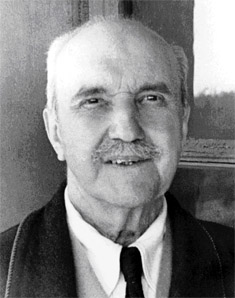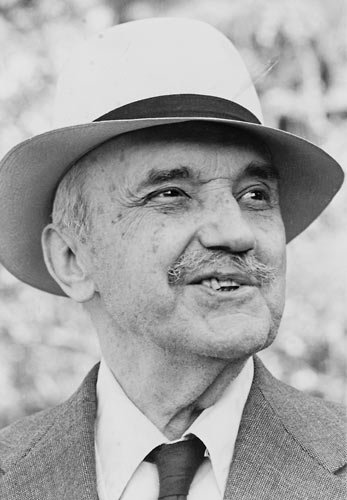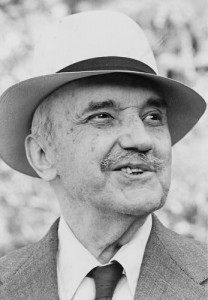 To Daniel MacGhie Cory
To Daniel MacGhie Cory
Via Santo Stefano Rotondo, 6
Rome. June 14, 1947
[Material things] are perceived just as they appear to each observer, according to his eyesight and other senses: and this is known to everybody without optics or epistemology. That there is a dynamic or material reality, on the same plane as one’s self or psyche (not transcendental spirit) is assumed and required, as you say, in action: and action includes any movement of alarm, attraction, or attention. Animal faith posits the rat in the hole, by smell, in the dog. That the smell, as a datum, is “in” the brain, I should not say, because in that capacity I think it is an essence, and non-existent anywhere: but the feeling or inarticulate intuition of it exists, and its organ is no doubt in the brain; although the intuition as a living act belongs to the realm of spirit, and is not in space.
This old analysis of mine, which I don’t think it worth while to reconsider, makes me feel that your position is unnecessarily paradoxical, resting on what seems to me the radical error of British empiricism, namely, having turned “ideas” from being essences, into being perceptions. The knowledge we have of the world is a system of ideas; but it is not our psychological life, which is only feeling diversified. It is the function of parts of that life, in its vital alertness, to be the signs of existent objects and of their virtual character in terms of our own possible experience. We live in imagination, which we regard, often virtually with sufficient justification, as knowledge. But it is all theoretical, poetical, vaguely and floatingly sensuous; and it is science, as you say, that refines and consolidates it into literal exact abstract knowledge of the “skeleton” of dynamic-nature.
From The Letters of George Santayana: Book Seven, 1941-1947. Cambridge, MA: The MIT Press, 2006.
Location of manuscript: Butler Library, Columbia University, New York NY.
 To Cyril Coniston Clemens
To Cyril Coniston Clemens








